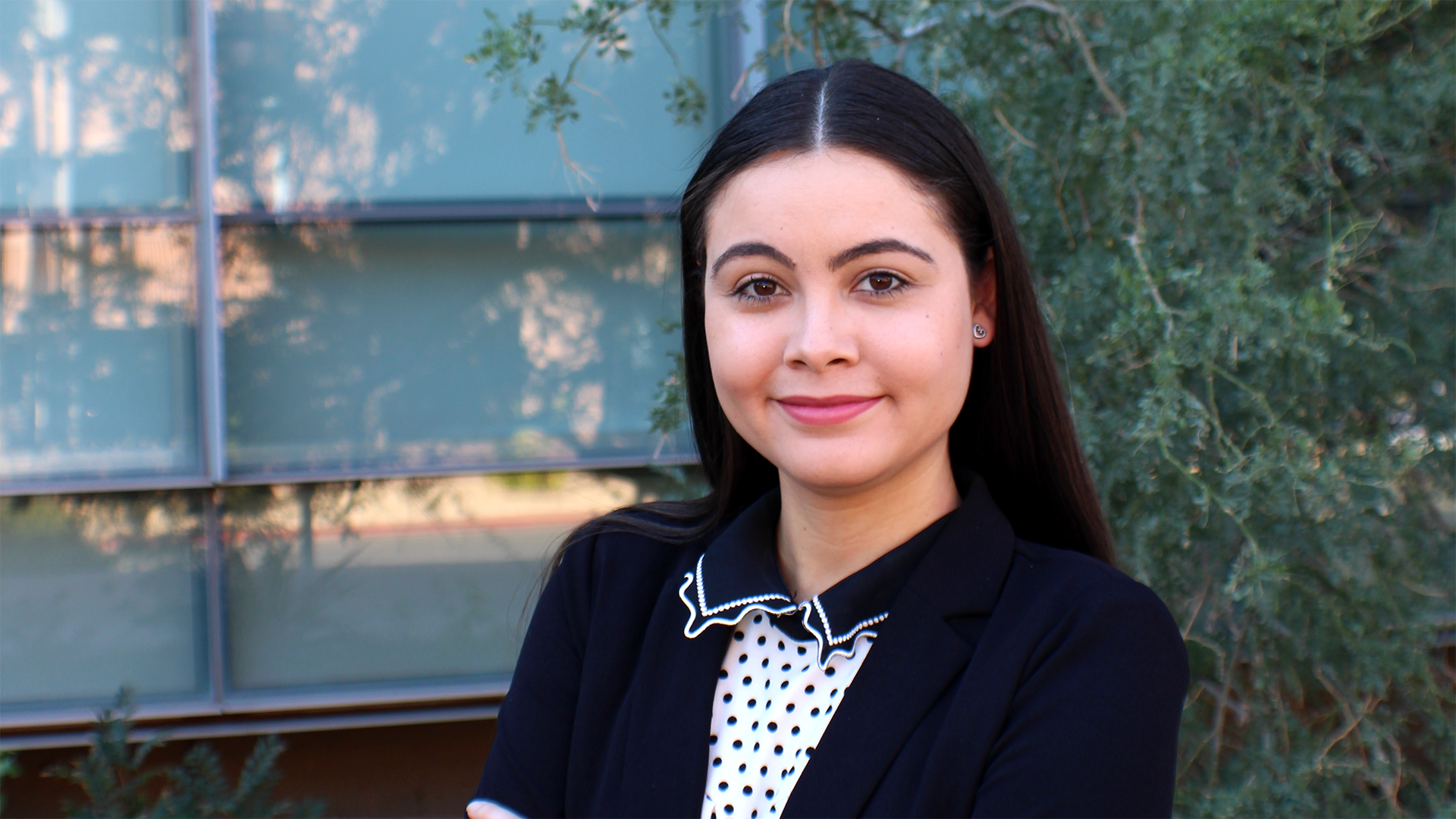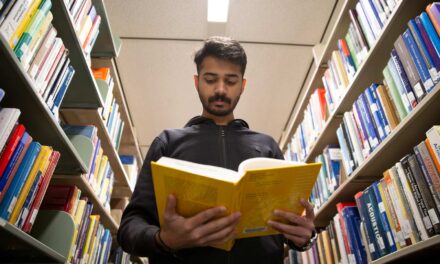
Growing social good
Industrial engineering doctoral student Xaimarie Hernández Cruz earns prestigious Quad Fellowship

Xaimarie Hernández Cruz, an industrial engineering doctoral student in the School of Computing and Augmented Intelligence, part of the Ira A. Fulton Schools of Engineering at Arizona State University, has been interested in the intersection of STEM research and social change since her days as an undergraduate student.
When Hernández Cruz heard about the prestigious Quad Fellowship, she knew it was the perfect fit.
The fellowship is an initiative of the governments of Australia, India, Japan and the United States that brings together exceptional graduate students in engineering, mathematics, science and technology fields to advance research and innovation with a lens on positive social impacts.
As part of the Quad Fellowship’s inaugural cohort, Hernández Cruz is among 100 master’s degree and doctoral students selected from across the four countries involved. She is one of only 25 selected to represent the United States.
Quad Fellows will study in the United States, where the program aims to build ties among the next generation of scientists and technologists by providing scholarships, immersive and inspiring events, mentorship, career-advancing programming and cross-cultural exchange opportunities.
Operated by the Schmidt Futures philanthropic initiative, the Quad Fellowship offers each fellow a one-time award of $50,000, which can be used for tuition, research, fees, books, room and board and other academic expenses such as research-related travel.
“The Quad Fellowship and what it aims to accomplish really resonated with what I want to do in the future,” Hernández Cruz says. “In my case, this opportunity helps me to be able to advance industrial engineering and data mining in a way that is tailored to helping society through agricultural applications safely, which is something I hope to develop more in the future.”
In her research at the School of Computing and Augmented Intelligence, Hernández Cruz works closely with her co-advisor Rene Villalobos, an associate professor of industrial engineering who studies the commercial food supply chain.
“Xaimarie has a superb work ethic, is well organized and is very proactive, so it’s no surprise that she would earn such an amazing opportunity,” Villalobos says. “I’m lucky to work very closely with her and would encourage any other students who are interested in prestigious opportunities like this one to be more like Xaimarie. She’s a pleasure to work with.”
Hernández Cruz has been part of the project since 2019, where her research aims to develop a system to help small farmers plan for produce demand. The system would also help farmers determine how to handle disruptive events such as the COVID-19 pandemic or E. coli outbreaks that could affect the future market, food availability and affordability for the consumer.
A challenge Hernández Cruz faces in her research is that public, complete and reliable information can be limited to certain regions of the United States. Although the terminal market information she most commonly works with is not available in all cities, this inspired another facet of her work that she is currently developing with the guidance of her co-advisor George Runger, a professor of industrial engineering.
“We want what we’re doing to be applicable to growers in any region so they can benefit from it,” she says. “For the regions we don’t have data for, we had the idea to create a forecasting model that uses information we have to estimate data for these regions.”
Teresa Wu, a professor of industrial engineering and former co-director of the School of Computing and Augmented Intelligence, believes that the opportunities the Fulton Schools provide for students like Hernández Cruz set them up for success.
“The School of Computing and Augmented Intelligence’s support of impactful, transdisciplinary research helps prepare students to achieve incredible academic opportunities like this one,” Wu says. “I speak for everyone when I say that we are thrilled to have Xaimarie represent our school as a Quad Fellow and share our warmest congratulations with her for earning this incredible recognition.”
Hernández Cruz agrees that her experience at ASU prepared her for the Quad Fellowship.
“I was attracted to ASU not only because of the high academic standard of research conducted here, but also because of the encouragement for research to be implementable, applicable and tailored toward social good,” Hernández Cruz says. “At ASU, I‘ve done plenty of academic and research work, but I have never forgotten the real application of this work and how it will impact society.”
As she looks forward to the fellowship’s official kick-off in the fall of 2023, Hernández Cruz is most excited for the opportunity to collaborate with her international peers.
“It will be great to be able to utilize a cross-cultural perspective and learn more from the other Quad Fellows about their countries, histories, cuisines and cultures,” she says. “I’m also hoping there will be an opportunity to collaborate on the 21st century challenges identified by the Quad countries, including combating the climate crisis and partnering on emerging technologies.”



































